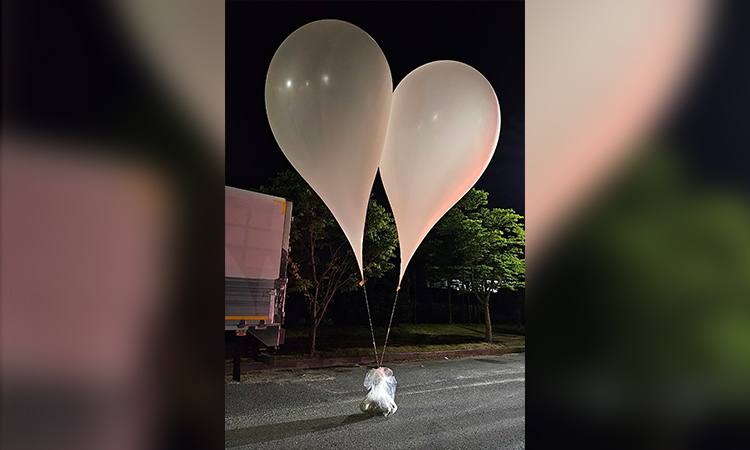NORTH Korea says it will stop sending trash-filled balloons across the border into South Korea, claiming its campaign has been an effective countermeasure against propaganda sent by anti-regime activists in the neighbouring country.
Since Tuesday, North Korea floated hundreds of balloons carrying bags of rubbish containing everything from cigarette butts to bits of cardboard and plastic, Seoul’s military said on Sunday, threatening to retaliate if the provocations do not stop.
Hours later, North Korea said it would halt the campaign.
“We made the ROK [Republic of Korea] clans get enough experience of how much unpleasant they feel and how much effort is needed to remove the scattered wastepaper,” said Kim Kang Il, a North Korean vice defence minister, in a statement carried by state media.
However, he warned that if South Korean activists float anti-Pyongyang propaganda leaflets via balloons again, North Korea will resume flying its own balloons to dump trash hundreds of times the amount of the South Korean leaflets found in the North.
South Korea has called the balloons and simultaneous GPS jamming from its nuclear-armed neighbour “irrational” and “low class”. But unlike the spate of recent ballistic missile launches, the refuse campaign doesn’t violate United Nations sanctions on Kim Jong Un’s isolated regime.
Seoul warned it would take strong countermeasures unless Pyongyang called off the balloon bombardment, saying it runs counter to the armistice agreement that ended the 1950-53 Korean War hostilities.
Activists in the South have also floated their own balloons over the border, filled with leaflets and sometimes cash, rice or USB thumb drives loaded with K-dramas.
Earlier this week, Pyongyang described its “sincere gifts” as a retaliation for the propaganda-laden balloons sent into North Korea.
South Korea’s Joint Chiefs of Staff said the balloons had been landing in northern provinces, including the capital Seoul and the adjacent area of Gyeonggi, which are collectively home to nearly half of South Korea’s population.






